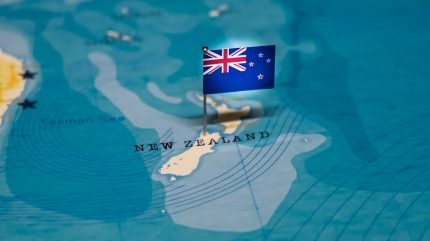
The Government of New Zealand is planning to pass legislation by the end of the year to lift the ban on offshore oil and gas exploration, reported Reuters.
The development comes as the nation faces escalating energy shortages and soaring prices.

Discover B2B Marketing That Performs
Combine business intelligence and editorial excellence to reach engaged professionals across 36 leading media platforms.
The move is intended to attract investment back into the country’s energy sector, stabilise the national energy supply and ease regulations to aid the import of liquified natural gas.
The proposed reversal would open up areas outside the onshore energy-rich Taranaki region for exploration.
Prime Minister Christopher Luxon cited recent severe shortages that have led to some of the highest energy prices among developed nations, stating: “We are responding to a situation as I said New Zealand should never have seen in the first place.
“It would be the sensible, common sense thing to do if they genuinely cared about New Zealand’s energy security.”

US Tariffs are shifting - will you react or anticipate?
Don’t let policy changes catch you off guard. Stay proactive with real-time data and expert analysis.
By GlobalDataDuring a media briefing, Luxon called for bipartisan support for the bill.
The 2018 ban on offshore exploration permits was initiated under former Prime Minister Jacinda Ardern.
In 2023, New Zealand’s natural gas production declined by 12.5% and an additional 27.8% in the first quarter of 2024.
Energy Minister Simeon Brown pointed out that the decrease in natural gas production has led to a reliance on coal and diesel to power the grid as renewable energy sources have been unable to compensate for the deficit.
“The lakes are low, the sun hasn’t been shining, the wind hasn’t been blowing, and we have an inadequate supply of natural gas to meet demand,” Brown was quoted as saying.
The Crown Minerals Act Amendment Bill, as the proposed legislation is known, will also permit petroleum activities within certain conservation areas, provided they have minimal impact.
The bill outlines changes to the process of allocating petroleum exploration permits, offering options between a competitive tender and a non-tender, priority-in-time approach.
It further suggests updates to petroleum decommissioning requirements to better align with international standards and balance regulatory burdens with environmental risks.





